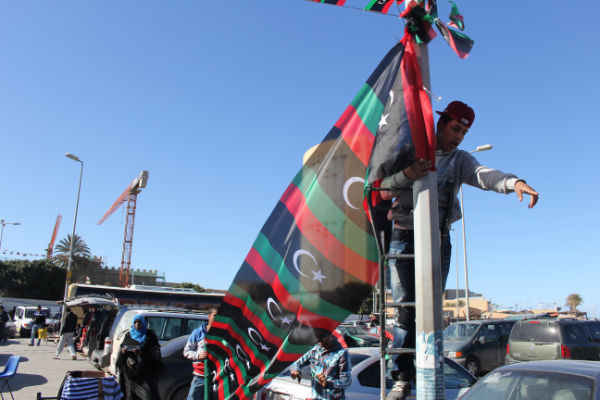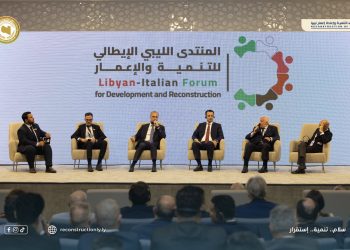By Mosadeq Hobrara.
Tripoli, 14 February 2013:
In the last few months there has been growing discontent across the country about the current . . .[restrict]Government and General National Congress (GNC). The central motives that appear to have fueled the anger of the population is a series of alleged corruptions scandals, the lack of decentralization, and the perceived ineffectiveness of the GNC and of the current government in tackling security, economic and political problems .
The GNC is being very slow in drafting a series of important laws that embody the goals of the revolution in the eyes of the population. These are the Political Isolation law, the Decentralization law, the law establishing the sixty member-strong committee for drafting the constitution (notably deciding whether they will be elected, or appointed), and the law establishing the new National Army.
Moreover, Mohammed Magarief, Chairman of the GNC, is accused of both overextending his authority, and spending too much time abroad in his role as acting Libyan President while neglecting the serious internal problems. One too many issues remain unresolved.
As an example, on Sunday Feb 3rd, the GNC was stormed again. A group of war-wounded revolutionaries and their supporters forced their way into the GNC building, demanding the authorities to pay their medical bills abroad. They claimed they had been thrown out of hospitals and hotels in a number of countries because of non-payment of bills.
It is with these premises that various activist groups, federalists and revolutionaries from Benghazi have called for a broad protest on February 15th, the second anniversary of the protest that began the revolution. The message has been relayed through a series of popular Facebook pages that have incited Libyans across the country to join the protest movement to “correct the path of the revolution”.
This is a list of disparate demands that various protest groups are voicing:
- Resignation of GNC President Magarief
- Resignation of the Army Chief of Staff Mangoush
- Immediately passing the Political Isolation law
- An immediate decision on the Constitution-drafting Committee
- Immediately passing the law on decentralization
- Relocate the National Oil Corporation (NOC), public companies and facilities founded in Benghazi to Benghazi, where it was originally founded (later moved to Tripoli by Gaddafi)
- Reinstate with two capitals ( Tripoli and Benghazi ) based on the 1951 Libyan constitution
- Reinstate the Federal System
- Increase workers’ wages and kick start economic development
- Accelerate the building of the army and police
- Dissolve all militias
- Remove Ministers and other civil servants in high positions that possess two nationalities
It should be noted that allegedly the “Libya Shield Forces East” joined the movement by offering their protection to the protesters.
The GNC have held several closed sessions to discuss the possible events and implications of the 15th February protest.
The Supreme Security Committee (SSC) and other security authorities have been tasked to ensure security in the anticipation of possible riots and attacks.
In a recent TV interview, GNC Chairman Magarief has accused the 15th February protest movement of compromising the legitimacy of the GNC.
There are also serious concerns that this opportunity will be seized by supporters of the former regime to fuel unrest and possibly conduct attacks that would undermine the credibility of the current government. In fact, some Facebook groups used as platforms by supporters of the former regime (e.g. “the resistance”) point to February 15th, 2013 as the day of their uprising to return power.
On Monday February 4th, 2013 some Islamist parties held a meeting with the federalist group in Benghazi to decide the demands of the 15th February movement.
Two days later, the GNC held a session in a tent at the GNC backyard and decided to choose the Constitution-drafting Committee of 60 by a direct election system.
On February 8th GNC head Magarief and Prime Minster Ali Zeidan visited Benghazi to meet the various groups and civil society organizations as a proactive mitigating act in order to listen directly to the various groups’ demands.
The Prime minster Ali Zeidan and GNC Chairman also intensified their media appearances over the last few weeks.
Equally, numerous civil society organizations, tribes and Local councils all over the country announce their support to the legitimate representatives of the will of the Libyan people: the Ali Zeidan government and the GNC.
Finally, it will be interesting to see if Libya follows in the footsteps of Egypt and Tunisia by correcting the path of its Revolution and if this new Revolution will again be ignited by the “Spark” city of Benghazi?
Mosadeq Hobrara is a civil society activist.
The views in this opinion piece do not necessarily represent those of Libya Herald. [/restrict]




